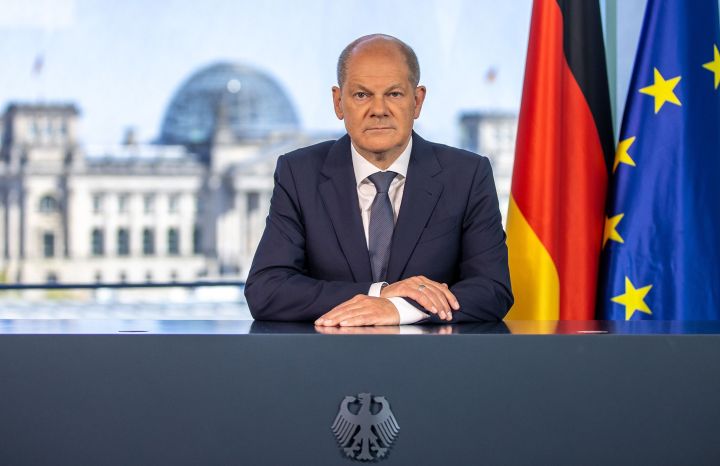Business Maverick
Scholz defends Ukraine stance as voters punish muddled policy

German Chancellor Olaf Scholz defended his government’s efforts to support Ukraine in a bid to revive his flagging popularity after voters delivered a bruising defeat for his party. The fallout of a disjointed approach to the conflict became clear on Sunday, with the SPD suffering its first defeat since he took office in December.
Scholz’s party slumped to third in the northern state of Schleswig-Holstein. The SPD tumbled by some 12 percentage points to its worst-ever result there. It came in third behind the Christian Democrats – the main opposition party on the national level – and the Greens, a coalition ally. The loss sets up a difficult test next Sunday, when North Rhine-Westphalia, Germany’s most populous state, votes for a new administration.
Read more: Scholz’s SPD Trounced in Ukraine-Tinged German State Election
Scholz sought to clarify his stance on Ukraine with Germans concerned about the war spilling over. While Europe’s largest economy will continue to stand up to Russian President Vladimir Putin and send Kyiv weapons, Germany wouldn’t sacrifice its own security and affluence in the process, he said on Sunday in a rare televised address to the nation.
“We defend law and freedom,” he said in prepared remarks ahead of a speech to be broadcast later. “We support Ukraine in the fight against the aggressor. Not doing so would mean capitulating to sheer violence — and empowering the attacker.”
After initially rejecting supplying heavy weapons, his government is now sending rapid-fire howitzers to Kyiv’s military and is backing the European Union’s oil and coal embargo. But a plan to transfer anti-aircraft tanks to Ukraine has stumbled over difficulties in securing ammunition.
Read more: Scholz’s Hard Power Push Isn’t Enough for Germany’s Allies
The policy on heavy weapons was an awkward about-face for Scholz, who had warned that delivering tanks and other advanced weapons to Ukraine risked triggering nuclear war. In a bid to reassure Germans, he laid out four guiding principles in the government’s support for Kyiv:
- Germany would not act alone but always coordinate with transatlantic and European allies
- Military support for Ukraine wouldn’t compromise Germany’s defensive capabilities, which will be strengthened
- The government will not take action against the Kremlin that could harm Germany more than Russia
- Germany will not support action that would make NATO a military participant in the conflict
In the early stages of the war, Scholz took a bold step to end decades of military underfunding and cast aside the country’s resistance against sending weapons into conflict zones. But as Russian atrocities came to light, he failed to adapt his stance. He also struggled to move beyond his party’s past policy of rapprochement with Moscow.
Read more: Long Shadow of Germany’s Top Putin Ally Is Hemming in Scholz
The choppy performance has had an effect on his popularity. In a poll last week, Germany’s Green party provided the three most popular members of the government for the first time, while the chancellor dropped to seventh place.

Scholz will continue his effort to show leadership on Ukraine on Monday, when he hosts French President Emmanuel Macron for talks in Berlin over dinner. Both leaders are expected to discuss sanctions against Russia as well as closer energy and defense cooperation among EU member states in response to Russia’s invasion of Ukraine.
Macron, who won reelection two weeks ago, will give a speech on the future of Europe in Strasbourg before traveling to Berlin to meet with Scholz.
The meeting is also a show of solidarity on the same day as Victory Day in Moscow. International allies are nervously awaiting Putin’s comments on what has become an annual showcase of Russia’s military strength.
Scholz called the Kremlin’s efforts to justify the invasion by claiming it was to combat Nazis was “disgraceful,” adding that it’s Germany’s historic duty to stand up to the aggression and not allow Russia to succeed.
“One thing is clear: there should not be a dictated peace by Russia,” Scholz said on Sunday. “The Ukrainians will not accept that – and neither will we.” BM


















 Become an Insider
Become an Insider
Comments - Please login in order to comment.